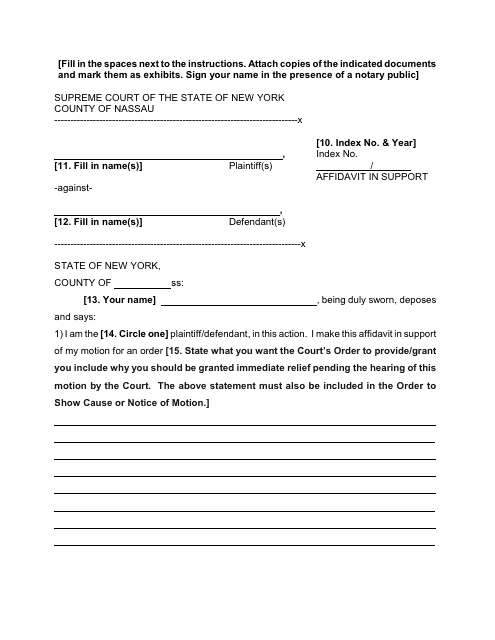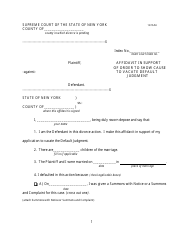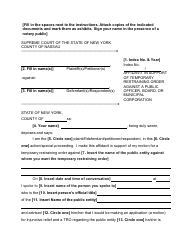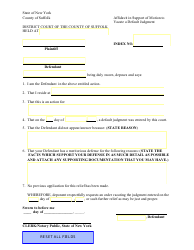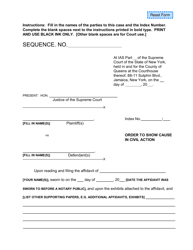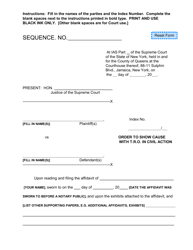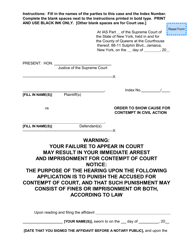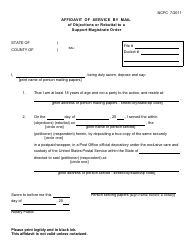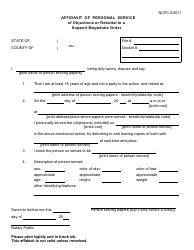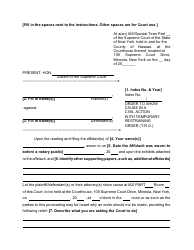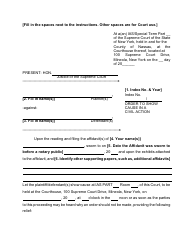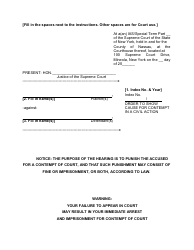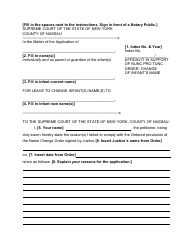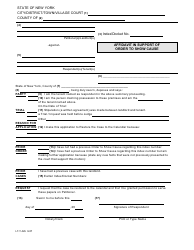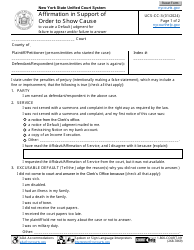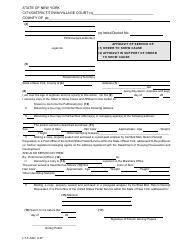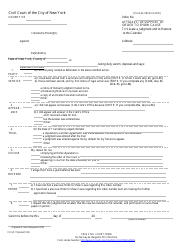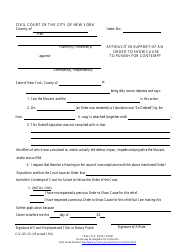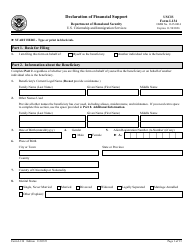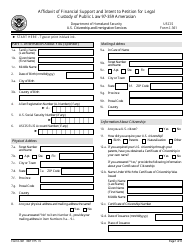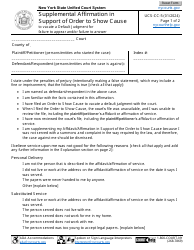Form 39 Affidavit in Support of a Temporary Restraining Order in a Civil Action - Nassau County, New York
What Is Form 39?
This is a legal form that was released by the New York Supreme Court - a government authority operating within New York. The form may be used strictly within Nassau County. As of today, no separate filing guidelines for the form are provided by the issuing department.
FAQ
Q: What is Form 39 Affidavit?
A: Form 39 Affidavit is a document used to support a request for a Temporary Restraining Order (TRO) in a civil action in Nassau County, New York.
Q: What is a Temporary Restraining Order?
A: A Temporary Restraining Order is a court order that temporarily prohibits certain actions until a hearing can be held to determine the merits of the case.
Q: What is the purpose of Form 39 Affidavit?
A: The purpose of Form 39 Affidavit is to provide a sworn statement with factual details and evidence to support the need for a TRO in a civil action.
Q: Who can file Form 39 Affidavit?
A: Any party involved in a civil action in Nassau County, New York who seeks a TRO can file Form 39 Affidavit.
Q: What should be included in Form 39 Affidavit?
A: Form 39 Affidavit should include detailed factual information, supporting evidence, and the reasons why a TRO is necessary in the civil action.
Q: Is Form 39 Affidavit required for a TRO?
A: Yes, Form 39 Affidavit is generally required in order to request a TRO in a civil action in Nassau County, New York.
Q: Can an attorney help with filling out Form 39 Affidavit?
A: Yes, it is recommended to seek the assistance of an attorney to properly fill out Form 39 Affidavit and navigate the legal process.
Q: What is the filing fee for Form 39 Affidavit?
A: The filing fee for Form 39 Affidavit may vary. It is best to check with the Nassau County, New York courthouse for the current fee schedule.
Q: What happens after filing Form 39 Affidavit?
A: After filing Form 39 Affidavit, a judge will review the request for a TRO and determine whether to grant or deny it based on the evidence provided.
Form Details:
- The latest edition provided by the New York Supreme Court;
- Easy to use and ready to print;
- Quick to customize;
- Compatible with most PDF-viewing applications;
- Fill out the form in our online filing application.
Download a fillable version of Form 39 by clicking the link below or browse more documents and templates provided by the New York Supreme Court.
